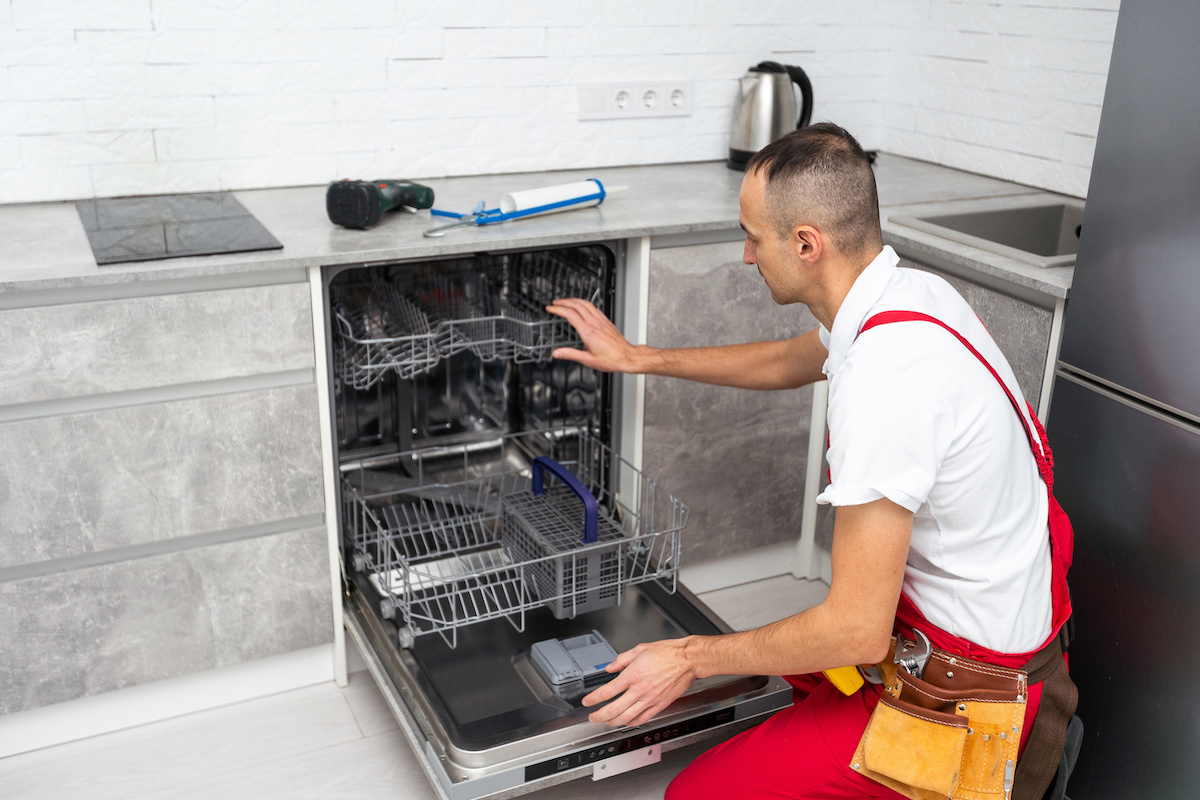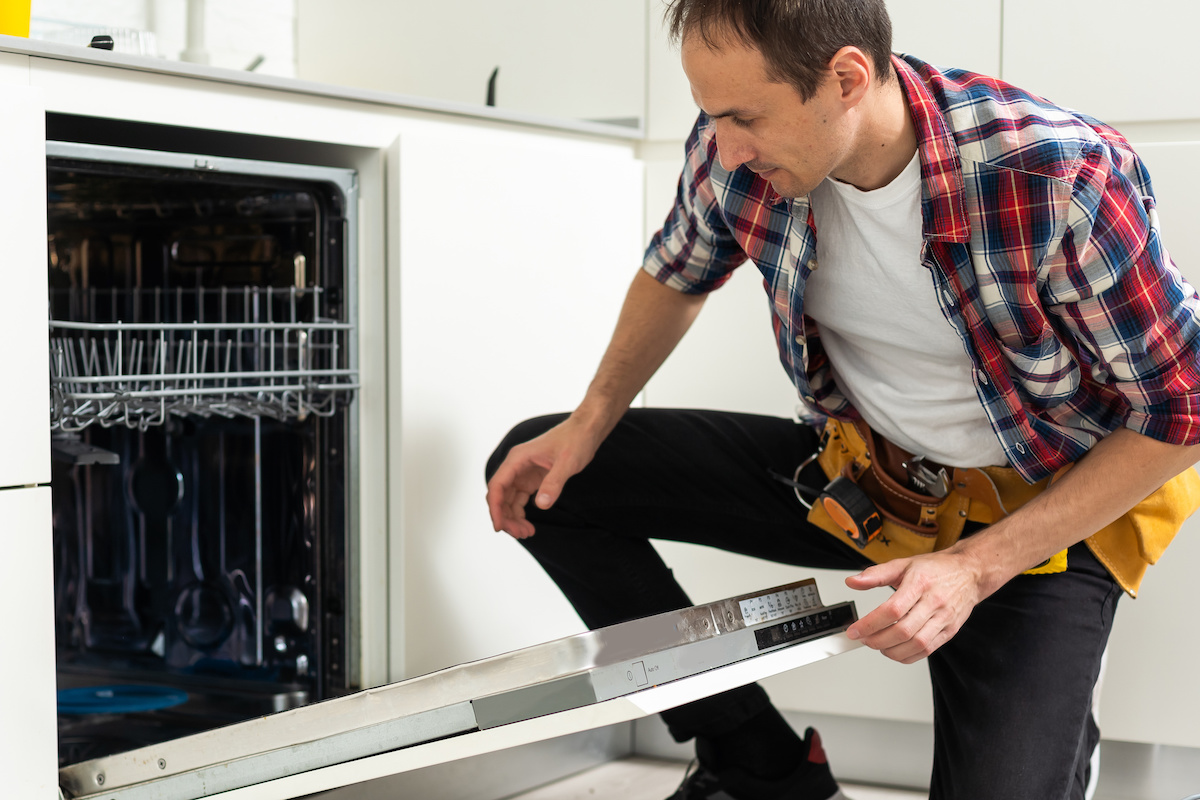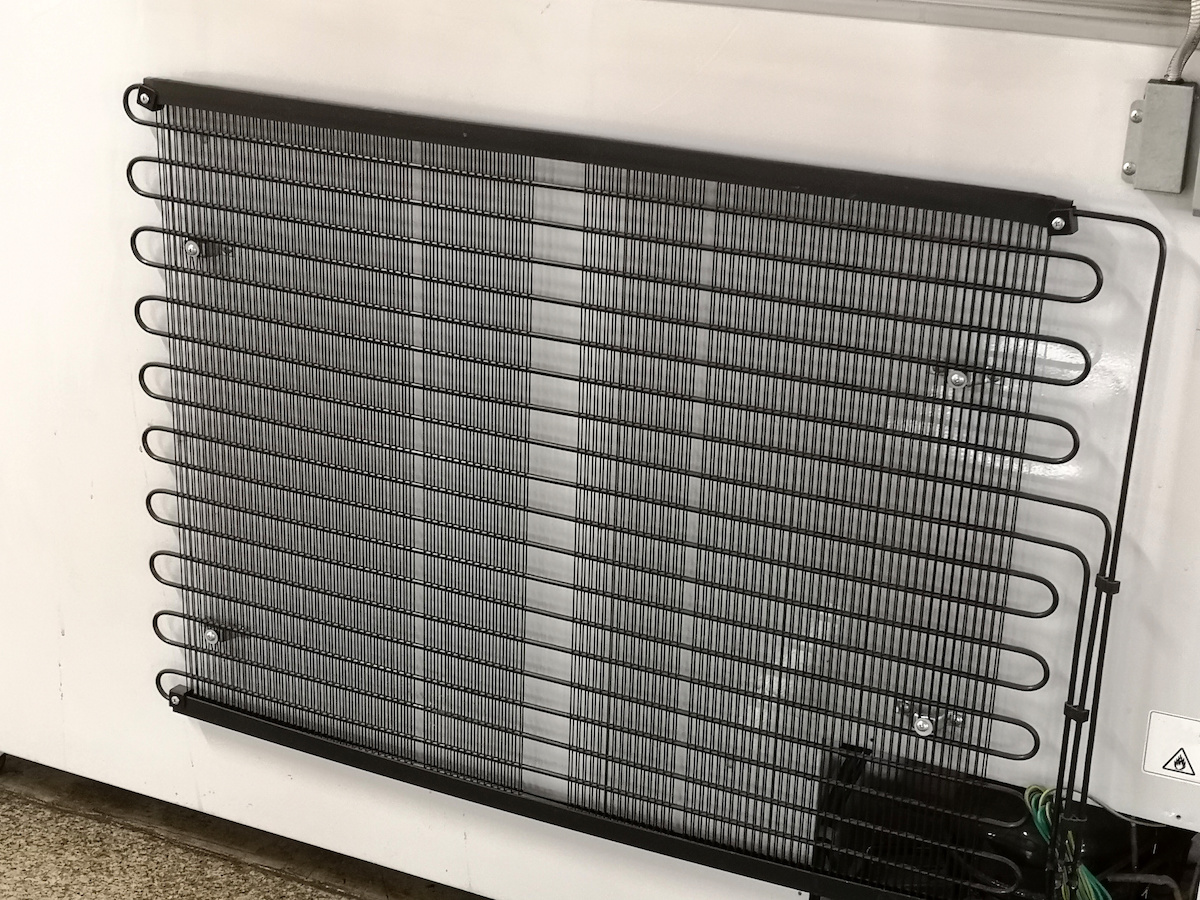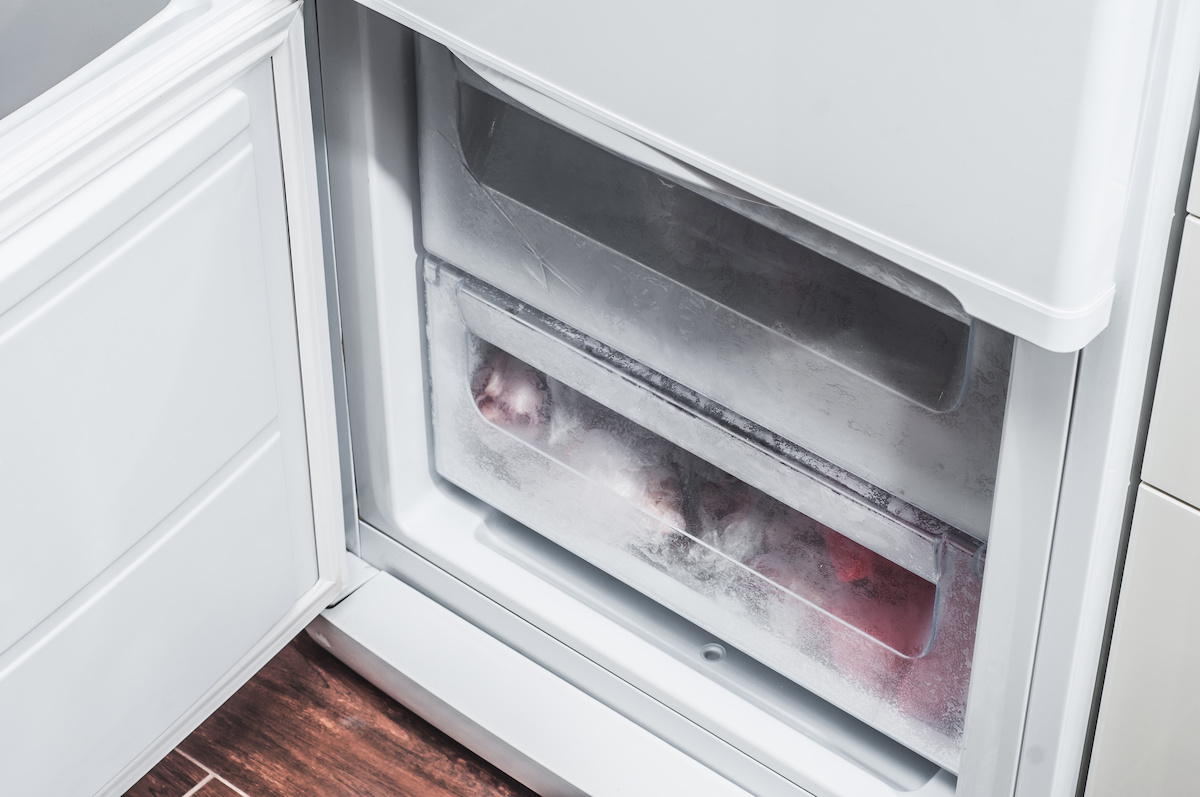
Why Is My Dishwasher Leaking? Common Causes and Solutions
A leaking dishwasher can be a frustrating issue that not only disrupts your kitchen routine but also risks water damage to your home. Whether it’s a small puddle forming under your appliance or a more severe water spill, identifying the cause and resolving it quickly is essential.
In this article, we’ll dive into some common causes of dishwasher leaks and offer potential solutions to keep your kitchen dry and your dishwasher functioning optimally.
1. Worn Out or Damaged Door Seal
Cause: The door seal, also known as the gasket, is responsible for keeping water inside the dishwasher. Over time, the rubber seal can crack, become worn, or accumulate food debris, preventing it from forming a watertight seal.
Solution: Inspect the rubber seal around the door for visible damage such as cracks, tears, or looseness. If the seal looks worn, then it will need to be replaced. You can purchase a replacement seal and install it yourself or have a professional do it to ensure a proper fit. Cleaning the seal regularly can also help maintain its integrity.
2. Blocked or Clogged Dishwasher Drain
Cause: A blocked or clogged drain can lead to improper water drainage, causing the water to pool at the bottom of the appliance and eventually leak. Food particles, grease, or debris may clog the drain, especially if you don’t pre-rinse dishes before loading.
Solution: Clean out the dishwasher drain by removing any visible debris. You may also need to check the drain hose for blockages or kinks. Running a cleaning solution designed for dishwashers can also help clear out built-up residue. If the problem persists, call a professional for a thorough inspection and repair.

3. Faulty Water Inlet Valve
Cause: The water inlet valve is responsible for controlling the flow of water into the dishwasher. If this valve becomes defective or worn, it may allow too much water into the dishwasher, leading to an overflow and leakage.
Solution: If you suspect the water inlet valve is faulty, then it’s best to have a professional diagnose and replace it. This component is essential for controlling water flow, and improper repairs could lead to further issues.
4. Loose or Cracked Hoses
Cause: The hoses connected to your dishwasher, such as the water supply and drain hoses, can become loose or cracked over time. When this happens, water can escape through the compromised hoses, leading to leaks.
Solution: Inspect the hoses behind your dishwasher for any visible cracks, loose connections, or signs of wear. Tighten any loose connections, and if you notice cracks or damage, replace the affected hose. Make sure to use high-quality replacement parts to prevent future issues.
5. Overloading the Dishwasher
Cause: Overloading the dishwasher can cause water to splash out, as the water jets inside the appliance can’t reach the dishes evenly, leading to inefficient cleaning and potential leaks.
Solution: Avoid overloading the dishwasher by following the manufacturer’s guidelines for capacity. Ensure that dishes are arranged properly, and nothing is blocking the door from closing completely. Running smaller loads may help prevent future leaks and improve cleaning efficiency.
6. Detergent Problems
Cause: Using too much detergent or using the wrong type of detergent can cause excess suds to form. Excessive suds can overflow from the dishwasher and create leaks during the wash cycle.
Solution: Always use a dishwasher detergent specifically designed for automatic dishwashers. Check the manufacturer’s recommendations for the proper amount of detergent to use. If you’ve used the wrong detergent, then run the dishwasher on an empty cycle to remove any excess soap.
7. Malfunctioning Float Switch
Cause: The float switch is a safety mechanism that prevents the dishwasher from overfilling with water. If the float switch becomes stuck or malfunctions, then it may not shut off the water intake, leading to an overflow and subsequent leakage.
Solution: Inspect the float switch located at the bottom of the dishwasher. Make sure it moves freely and is not obstructed by debris. If it appears damaged or is malfunctioning, then it may need to be replaced by a professional.
8. Misaligned Dishwasher Door
Cause: If the dishwasher door is not properly aligned or if the door latch is faulty, then it may not close securely, allowing water to escape during the wash cycle.
Solution: Check the alignment of the door and the condition of the latch. If the door doesn’t close properly, then the latch may need to be adjusted or replaced. Ensuring the door closes securely will help prevent leaks.
9. Leaking Pump Seal
Cause: The dishwasher pump circulates water during the wash cycle, and the pump seal prevents water from leaking out. If the pump seal becomes damaged or worn, it can cause a leak at the bottom of the appliance.
Solution: A damaged pump seal will need to be replaced. Because this repair involves accessing internal components of the dishwasher, it’s recommended to have a professional handle it to ensure the seal is installed correctly.
10. Cracked Dishwasher Tub
Cause: In some cases, the interior tub of the dishwasher may develop cracks over time, especially if it’s made of plastic. Water can seep through these cracks, causing leaks underneath the appliance.
Solution: Inspect the dishwasher tub for any visible cracks or damage. If the tub is cracked, it may need to be replaced entirely, which can be a more extensive and costly repair. Consult a professional to determine the best course of action.
Preventative Maintenance Tips
While dishwasher leaks can be caused by various factors, regular maintenance can help prevent issues before they become serious. Here are some preventative steps you can take to keep your dishwasher in good condition:
- Clean the filter regularly: The dishwasher filter traps food particles and debris. Cleaning it every few weeks can prevent clogs and improve water drainage.
- Inspect seals and hoses: Periodically check the door seal and hoses for signs of wear or damage. Replace these parts as needed to help avoid leaks.
- Run dishwasher cleaning cycles: Using a dishwasher cleaner once a month can help remove grease, lime scale, and detergent residue that could contribute to blockages and leaks.
- Check water levels: Make sure your dishwasher is not overfilling by monitoring the water level inside the appliance. If you notice overfilling, it may indicate a problem with the float switch or water inlet valve.
When to Call a Professional
While some dishwasher leaks can be resolved with basic troubleshooting, others may require the expertise of a professional technician. If you’ve tried the above solutions and your dishwasher is still leaking, then it’s time to call in the experts. At Atlanta Appliance Services, we specialize in diagnosing and repairing dishwashers to ensure they run smoothly and efficiently.
Our team is experienced in handling a wide range of appliance issues, and we can quickly identify the root cause of your dishwasher leak. Whether it’s replacing a faulty part, fixing a drainage issue, or performing a complete inspection, we’re here to help you get your dishwasher back in top condition.
If Your Dishwasher is Leaking, Call Us!
A dishwasher leaking is more than just a minor inconvenience – it can lead to water damage, increased utility bills, and further appliance issues if left unresolved. By understanding the common causes of dishwasher leaks and knowing how to address them, you can keep your kitchen dry and prevent long-term problems. However, if you’re unsure of the cause or need professional assistance, don’t hesitate to reach out to Atlanta Appliance Services for expert support.
Call us today to schedule your repair and get your dishwasher running smoothly again!



